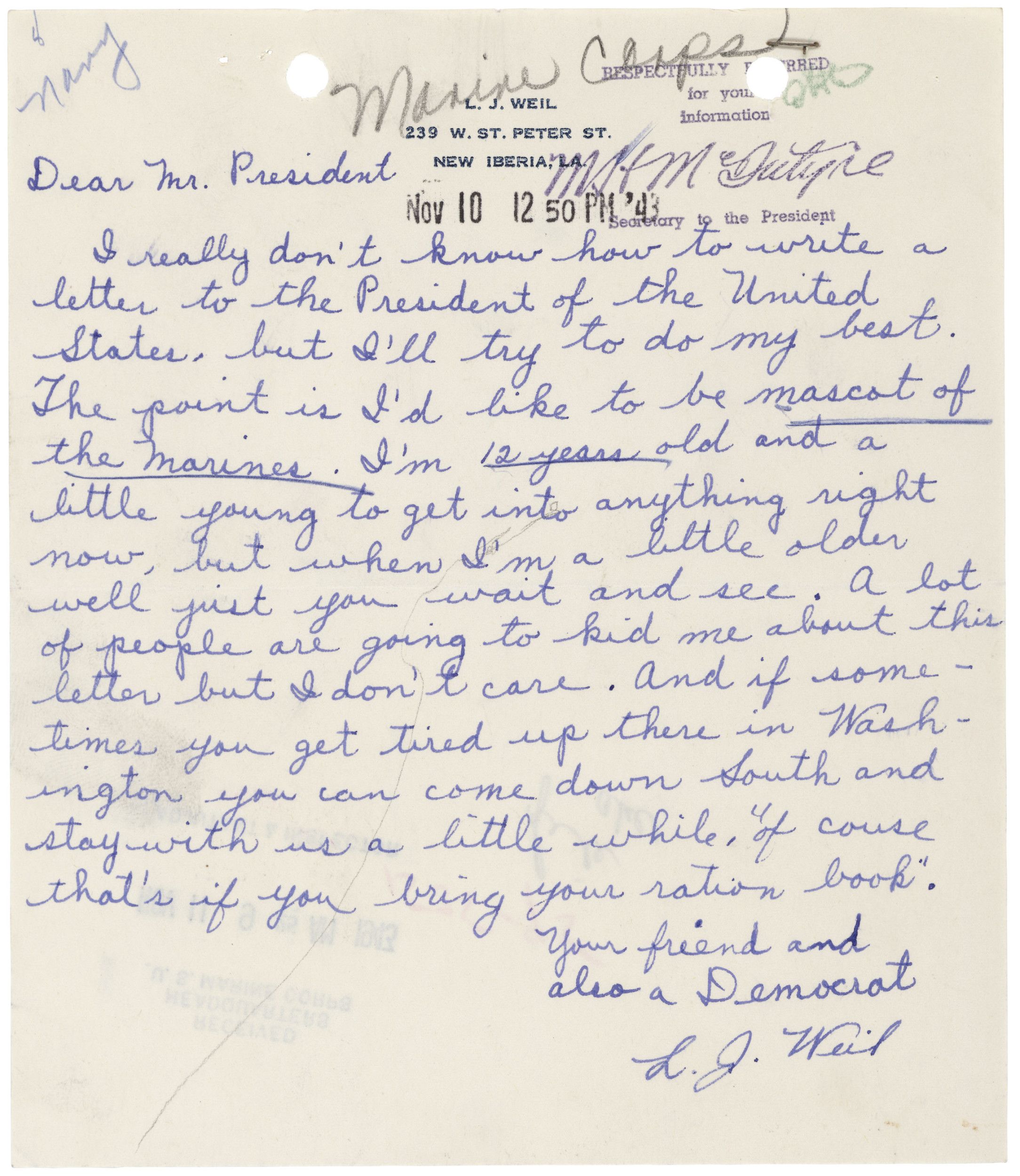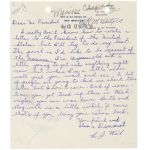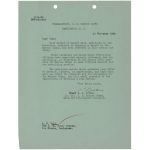Letter from L. J. Weil to President Franklin D. Roosevelt
11/10/1943
Add to Favorites:
Add all page(s) of this document to activity:

Add only page 1 to activity:
Add only page 2 to activity:
During World War II, the Marines distinguished themselves on land, sea, and in the air. Daring attacks and rescues were well covered in the paper and in newsreels. Marines became popular heroes — even Bugs Bunny wanted to be a Marine.
Twelve-year-old L. J. Weil of New Iberia, Louisiana, sent this letter to President Franklin D. Roosevelt in 1943. Weil asked if he could be the mascot of the Marines. He also offered for the President to "come down South" and stay with Weil if he ever got "tired up there in Washington" – as long as the President brought his ration book. Weil signed his letter "Your friend and also a Democrat."
The official response from the Marine Corps is included, explaining that there was no authority to name official mascots.
Twelve-year-old L. J. Weil of New Iberia, Louisiana, sent this letter to President Franklin D. Roosevelt in 1943. Weil asked if he could be the mascot of the Marines. He also offered for the President to "come down South" and stay with Weil if he ever got "tired up there in Washington" – as long as the President brought his ration book. Weil signed his letter "Your friend and also a Democrat."
The official response from the Marine Corps is included, explaining that there was no authority to name official mascots.
This primary source comes from the Records of the U.S. Marine Corps.
National Archives Identifier: 595164
Full Citation: Letter from L. J. Weil to President Franklin D. Roosevelt Asking to Be the Mascot of the Marines; 11/10/1943; 1535-95 Mascots; General Correspondence, 1/1/1939 - 6/30/1950; Records of the U.S. Marine Corps, Record Group 127; National Archives at College Park, College Park, MD. [Online Version, https://www.docsteach.org/documents/document/weil-fdr, April 26, 2024]Rights: Public Domain, Free of Known Copyright Restrictions. Learn more on our privacy and legal page.





